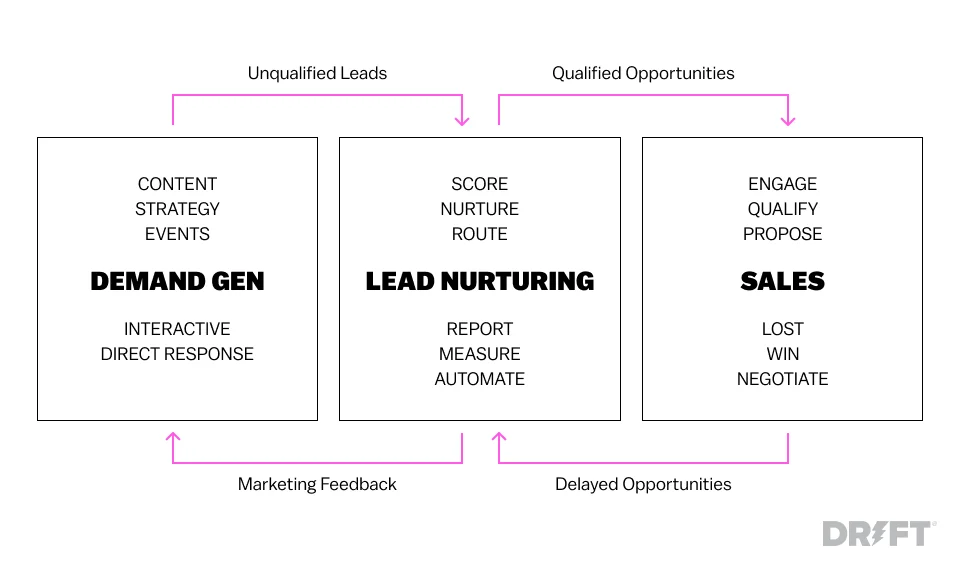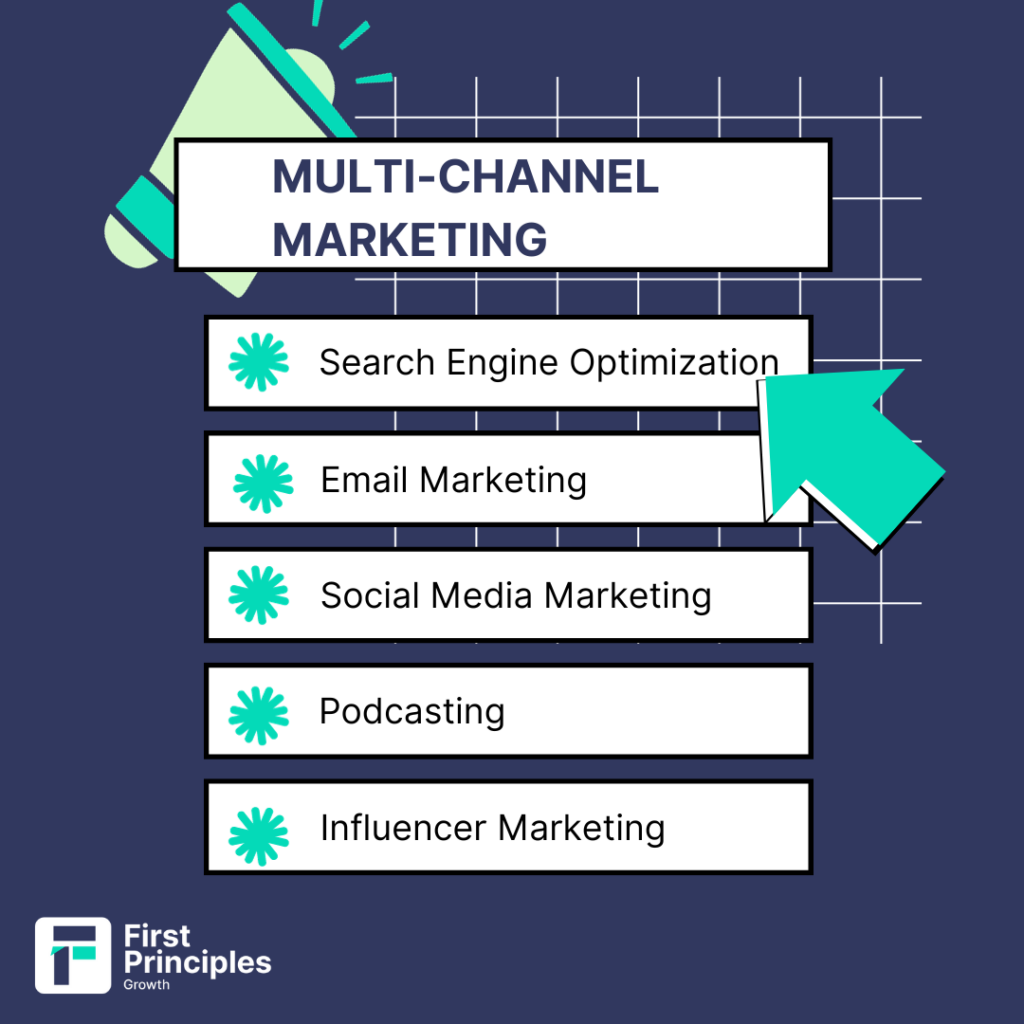
Home > What is Demand Generation? And How Does it Work for B2B SaaS?
Table of Contents
ToggleDemand Generation has been the most talked about marketing strategy for quite some time. Yet, if you ask 10 B2B SaaS marketers what it is, you will get 10 different versions. Besides all the confusion, the fact is that Demand generation works. And for the foreseeable future it is probably the only marketing strategy your business should focus on for the foreseeable future.
In this blog, we will clear out that confusion and paint you a picture of what the Demand-Gen strategy for your SaaS should look like.
Irrespective of whether you’re B2B or B2C, your consumers hate talking to salespeople. 75% of B2B buyers prefer to self-educate themselves about the product and the offering rather than talking to a salesperson. One of the big reasons why demand-gen works is the way it incorporates content marketing in it.
Humans don’t like being sold, but they indeed love to buy. Instead of asking your prospects relentlessly, as you’d do in traditional cold email marketing, you should put your marketing efforts in a way that creates demand for your product, and people come on their own.
Demand generation in education-focused marketing with no expectation in return. When you give something valuable to people without asking for anything, you channel the power of reciprocation, and people feel compelled to give you something in return.
Meanwhile, traditional lead generation is optimized for capturing contact information – but prematurely pushes non-solution-seeking people to sales automation workflows, which is highly ineffective. So once someone shares their email to access your gated content (ebook, webinar, reports, etc.), don’t start selling them immediately.
Even though 91% of marketers say lead generation is their most important goal, those leads are wasted if you don’t nurture them with informational content.
Traditional lead generation is not working for your business because gated content generates top-of-the-funnel leads that are usually uninterested in buying. So, most sales team attempts to close them fail, harming the team’s morale and wasting their time. On the other hand, demand generation has a longer nurture period, which is more effective for getting qualified leads.
When it comes to B2B SaaS, demand generation is a strategic blend of crucial components, each working harmoniously to create brand visibility, customer engagement, and lead conversion. Let’s explore these essential components that drive demand generation for B2B SaaS companies:

In the intricate landscape of B2B SaaS, strategic content creation plays a pivotal role. SaaS businesses can address their target audience’s distinct pain points and challenges by developing insightful blog posts, whitepapers, webinars, and case studies. This content positions the brand as a trusted industry resource and provides valuable solutions to the audience’s business needs.

Effective demand generation in B2B SaaS involves a multi-channel approach. Social media platforms facilitate content sharing, community engagement, and brand visibility. Email marketing caters to leads at various stages, delivering personalized touchpoints to nurture their interest. Additionally, mastering SEO and utilizing PPC advertising ensures the brand’s prominence in relevant searches.
At the core of demand generation lies lead generation. B2B SaaS companies craft compelling offers – such as e-books, templates, or free trials – to entice potential clients into sharing their contact information. This initial interaction sets the stage for deeper engagement and ongoing communication.
The journey from lead to customer is a gradual process in B2B SaaS. Lead nurturing becomes crucial here. Through personalized communication via email campaigns or content distribution, businesses can provide tailored solutions, demonstrate their SaaS value, and guide leads toward making informed decisions.
Positioning as a thought leader within the industry is vital for B2B SaaS companies. Hosting webinars, workshops, and informative sessions showcases the SaaS solution’s capabilities and establishes the brand’s expertise. Businesses build trust and foster meaningful connections with their audience by offering a platform for knowledge exchange.
Understanding the interplay of these demand generation components is essential for crafting a robust strategy that resonates with potential clients and propels the growth of B2B SaaS enterprises.
The synergy between marketing and sales is paramount in the intricate dance of B2B demand generation. A seamless transition of qualified leads from marketing to sales is the linchpin of effective sales alignment. This handoff not only streamlines the conversion process but also optimizes resource allocation.
Communication and a continuous feedback loop between marketing and sales teams are critical in fine-tuning strategies and enhancing lead quality. Additionally, this collaborative approach allows sales teams to tailor their practices based on insights gained from marketing, thus increasing the likelihood of successful conversions. The harmonious interplay between these two departments ensures that leads are nurtured precisely and seamlessly guided toward becoming loyal customers.
B2B SaaS demand generation is a strategic compass for growth. Tailored content, multi-channel outreach, lead nurturing, and collaborative sales alignment form the core. Metrics-driven evaluation ensures adaptability, cementing success in a dynamic landscape. By embracing these principles, B2B SaaS companies can navigate the intricacies of demand generation, fostering meaningful connections and conversions in the digital age.
Ameet Mehta‘s expertise lies in building revenue engines for technology-enabled companies and private equity investments. He began his journey with TechStars Chicago and has since founded and acquired several companies through FirstPrinciples Holding Company. The FirstPrinciples portfolio generates over $7M in revenue/year with most companies in the SaaS space. He...